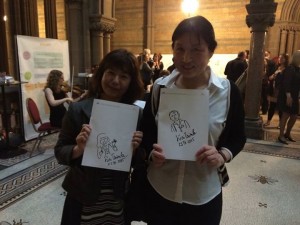Last week JLGC researchers visited Manchester to attend the 11th Annual Meeting of the OECD LEED Forum on Partnerships, which focused on the theme of how local leadership can provide more inclusive growth. The OECD Programme on Local Economic and Employment Development (LEED) was set up in 1982 to advise governments and places on “the creation of more and better quality jobs”, in a period in which the North West of England’s deindustrialization had led to widespread job losses and dented civic pride amid an era of local government reorganization.
It was appropriate therefore that in 2015 the Forum was convening in the imposing neo-gothic Manchester Town Hall at a time when the city is undergoing something of a renaissance in its fortunes following the recent Devolution Deal which will see a significant transfer of powers to the city region as part of the UK government’s ‘Northern Powerhouse’ agenda to rebalance the national economy.
Japan has been slightly ahead of the curve in recognizing Manchester’s resurgent economic dynamism and status as the North’s metropolitan hub – in 2008 it appointed a Honorary Consul to the city, which remains the only such Japanese post in an English city. The need for more inclusive growth has also been identified by Japanese commentators and researchers as a key factor for the success or otherwise of the government’s own economic reforms, ‘Abenomics’.
A further parallel with Japan was provided on the day of the conference with a report published by research firm Oxford Economics for the 2016 International Festival of Business, which forecast jobs growth (particularly in the knowledge sector) for the “booming” city at 3.8% over the next five years, favourably contrasted to the likes of Tokyo, Paris and Berlin. An OECD report launched on the day, ‘Local Economic Leadership’, contrasted Manchester’s economic governance with that of Amsterdam, Hamburg and Stockholm.
Away from the Victorian town hall, while discussing ‘economic development through global events’, we were able to enjoy a further Japanese tangent by visiting Sportcity and the Etihad Campus of Manchester City FC. This not only acts as the team’s new state of the art training facilities, but also houses the adjacent City of Manchester Stadium (a 2015 Rugby World Cup venue) and the headquarters of City Football Group, now part-owners of the Yokohama F Marinos (whose stadium is a 2019 RWC and 2020 Olympics venue).
While we were interested in both Manchester’s scientific and industrial heritage and its more recent innovation in political and economic terms, as well as its globally-recognized sporting prowess and brand, it was actually ageing in Japanese cities which was our primary focus at the event. Following the closing session, a seminar was held on ‘Ageing societies, resilient cities’ to launch the OECD report ‘Ageing in Cities’ which had looked at nine cities across the world (including Toyama and Yokohama) to identify key issues for other cities in adapting to and building on the opportunities of ageing societies.
The event heard from Manchester city leaders and officials working on its age-friendly agenda, as well as OECD directors (lead author Setsuko Saya is originally from Japan’s MLIT). Saya herself argued that Manchester’s strong lead on ageing cities and collaborative way of working made it an obvious choice for Japan’s cities to learn from, also drawing attention to the role of public-private partnerships in the case of Yokohama and its delivery of new districts which factor in the needs of older people.
Toyama’s ‘compact city’ strategies have been publicized in the UK by JLGC in the past and it’s of no surprise to see their utilization here (both case studies can be read here), while the report also goes on to highlight Japan’s 2014 Act on Special Measures for Urban Renaissance (which provides for cities to adopt compact urban structures) as good practice.
Japan’s Osaka was once dubbed the ‘Manchester of the Far East’ on account of its own industrial heritage and economic hub status. Last week’s events suggest that shared agendas on innovative and inclusive policies around growth, governance and greying cities will see this replicated between the UK and Japan in this century as well as the 19th.


